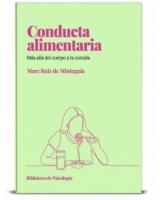How to Manage Stress When Returning to Routine after Vacation
The return to routine after the holidays provokes the most diverse responses in people. On the one hand, there are those who would like to extend their vacations and thus have a couple more days of rest; on the other, those eager to resume their routine, with their fixed schedules and daily activities. However, in both cases, it is possible that once they return to work, university or school, their view of the subject is clouded by he stress back to routine.
And, beyond the initial expectations that one has towards the idea of returning to the daily routine, on vacation we usually lead a more relaxed lifestyle. Vacation rhythms are slower: This is a period intended for rest, spending more time with family and friends, carrying out activities or hobbies for which we normally do not make room. In contrast to this, returning to routine involves exposure to a series of stressors to which we have become accustomed. It is logical that, as a result, many people feel that they are not able to readjust to work or academic activities. Most of the time, this is because they are not being able to handle routine stress effectively. In this article we will see what strategies we can put into practice to face this problem.
The importance of stress in our lives
First of all, before we delve into how to manage stress back to the routine, it is necessary make a series of points about stress, since it is a concept that tends to lend itself to confusion. Today, the idea is promulgated by many media outlets that we must reduce the stress in our lives as much as possible in order to live it to the fullest (as it will be so, in any gift shop it is possible to find a mug that alludes to the elimination of stress). However, in addition to the fact that exterminating stress from our lives represents an unrealistic fantasy, the truth is that it would not be convenient at all.
Stress is a mechanism thanks to which we can adapt to the stimuli that come from the environment.. All people are subject to different stimuli that alter our state of internal balance and to which we have to respond in a more or less efficient way. We call these stimuli stressors. A stressor can be something as simple as our doorbell ringing, which elicits a response in us (we usually go to see who shows up at our door); but it could also be something more complex and significant for our lives, such as the approach of the date of an exam that we want to pass and for which we must study.
Highlighting the diversity of situations in which we feel stress is key, since it allows us to notice a fact that is often forgotten: stress is necessary to achieve what is important for us. Without stress we would not be able to carry out basic tasks such as feeding ourselves or escaping from a dangerous situation, but we would not be able to pursue our personal projects either. It is a mechanism that urges us to move permanently. However, overexposure to certain very intense or frequent stressors triggers nervous and endocrine responses in our body that, if prolonged in the long term, could become chronic and seriously affect us physically, cognitively and emotional.
- Related article: "How to better manage time at work: 12 tips (and what to avoid)"
Stress management strategies for returning to routine
Therefore, having noted this, the objective of exposing a set of techniques aimed at managing stress is not to eliminate it—it we need—but to develop strategies that are useful to respond to the demands of the stressors of our daily routine without us overflow Below, we show some of them:
1. Make a list of tasks and priorities
In the educational field, it has been shown that homework overload, evaluations and exams are some of the main stressors to which students are exposed.. Also, supervision by bosses and meeting deadlines at work are sources of work stress. In both cases, making a list of tasks and priorities will be useful to manage the time available and avoid feeling overwhelmed by pending tasks. It is recommended that the list aim to establish concrete objectives - that is, detail the task as much as possible. possible—, achievable in the short term, and that are ordered by a key of importance or urgency. These will be the activities that we must resolve first, and then move on to the less relevant ones.
2. Establish rest schedules
Setting aside a certain time for rest is a key strategy for coping with stress back into your routine. Sometimes we make the mistake of believing that, since we have already rested during the holidays, the way to maximize our productivity is to get to work non-stop. However, this not only makes us tired, but also generates the opposite effect.: we end up decreasing our efficiency. For this reason, establishing a fixed time between routine activities to take a walk or practice Some hobby is essential to disconnect and then return to study or work with greater energy.
- You may be interested: "Disconnect on vacation? "Better reconnect with you"
3. Do stressful tasks mindfully
Another proposal to face the stress of everyday life is to carry out the tasks that They are normally stressful with full awareness, that is, maintaining the attention focus on the here and now. This does not ensure that unpleasant activities will no longer be unpleasant—in fact, it is even possible that paying attention to the present will make that discomfort more noticeable—but still It is a beneficial practice since it will allow us to make wiser decisions based on how we feel at that precise moment..
The practices Mindfulness They allow us to free ourselves from the automatic mode, accept physical sensations and internal experiences (thoughts, emotions) as such, no matter how uncomfortable they may be, in order to then see what to do with them. it. This is crucial for returning to daily activities after the holidays and preventing feeling overwhelmed by routine chores. Furthermore, just by noticing what we have in front of us we could be surprised. It seems that this “simply noticing” was already put into practice by Franz Kafka: “The everyday is in itself wonderful. I just record it.”



